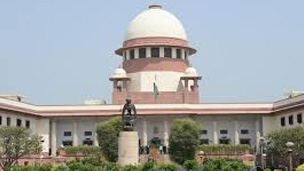Even as the government maintained that possessing an Aadhar card was optional, the Supreme Court on Monday asked it not to issue the cards to illegal immigrants and not set them as a pre-condition for availing welfare schemes.
Even as the government maintained that possessing an Aadhar card was optional, the Supreme Court on Monday asked it not to issue the cards to illegal immigrants and not set them as a pre-condition for availing welfare schemes.
Alleging political gains to the ruling party in the issuance of Aadhar card, senior counsel Anil Divan told the apex court bench of Justice B.S. Chauhan and Justice S.A. Bobde that indiscriminate issuance of Aadhar numbers to all residents, including illegal migrants, created a serious threat to national security.
Divan appeared for petitioner and former judge of Karnataka High Court K.S. Puttaswamy and was assisted by advocate Ankit Goel.
Taking on the government’s claim that taking Aadhar card was a voluntary choice, Divan said that linking the Aadhar number to getting benefits of social welfare schemes under the food security bill, cooking gas subsidy, Employees Provident Fund and direct benefit transfer under social welfare schemes made it mandatory in nature.
Resisting the plea for interim directions by the petitioner, Solicitor General Mohan Parasaran told the court that Aadhar card was purely voluntary and there was no need for interim directions.
Divan told the court that the individuals obtaining Aadhar number were required to give personal information that included biometrics, iris and fingerprints, which infringed the fundamental right to privacy under Article 21 of the constitution.
The senior counsel told the court that there was no legislative backing for obtaining personal information and the proposed legislation that government had introduced was rejected by the parliamentary standing committee on finance.
The court was told that there were no safeguard to protect the personal information of the citizens and there was no provision for penalties if the same comes to public domain.
The provision for collecting and retaining the biometric data had been held to be impermissible in by the top courts in Britain and France, the court was told.
The court was told that linking the flow of the benefits of several welfare schemes, including salaries to the teachers, had resulted in the denial of the same to the people who were otherwise entitled to it.
IANS





